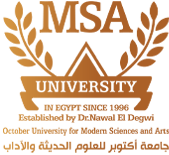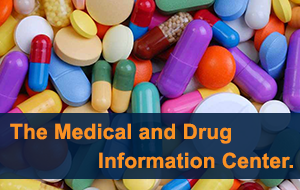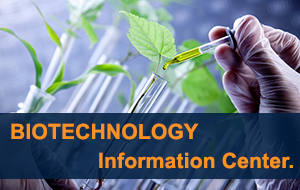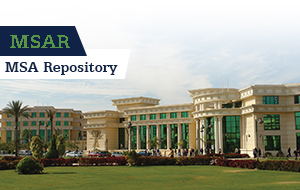Home
- Home
- Workshops
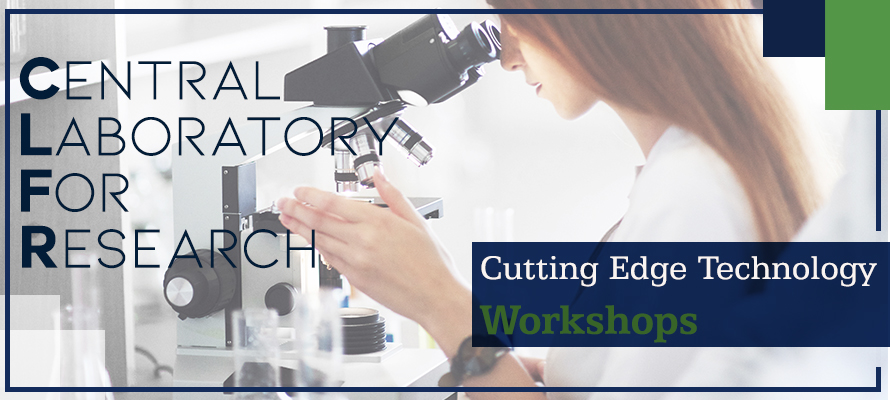
In Vitro Fertilization Hands-on (IVF)Workshop
Duration: 3 days (18 credit hours)
Course Content:
Theoretical content:
- Basics of Reproductive Biology.
- Female Reproductive System.
- Oogenesis.
- ART– Importance, History, Applications and Methods.
- Oocytes Maturation.
- Hormonal Regulation of Male Reproduction.
- Spermatogenesis.
- Sperm Maturation and Capacitation.
- Mechanism of Fertilization.
- Embryo Development stages.
- Culture System and Media Composition.
- IVF Laboratory and Quality Management.
Practical part: - Recovery of oocytes; - Grading and selecting of oocytes; - Culturing oocytes for maturation. - Maturation Assessment; - Equilibration of Oocytes for IVF; - Sperm Preparation for IVF; - Perform IVF Step. - Embryos Quality Assessment; - Embryos Handling and Washing; - Culturing of Embryos in Specific Culture Medium.
Fees: 1200 L.E. (Certificate, CofFees and lunch breaks are included)
Maximum number of attendees 20 trainees
Stem Cell Hands-on Workshop
Duration: 2 days (12 credit hours)
Course Content:
Theoretical content:
- What stem cell is?
- Different types of stem cell.
- Hematopoietic Stem Cell.
- Mesenchymal stem cell.
- Applications of stem cell
Practical part:
- Dissecting out femur and tibia of mouse.
- Aspiration and culturing of bone marrow aspirates.
- Isolation and Culture of Hematopoietic Stem Cell.
- Stem Cell Counting.
- Sub-culturing of stem cell.
Fees: 1200 L.E. (Certificate, CofFees and lunch breaks are included) Maximum number of attendees 20 trainees
Plant Tissue Culture Hands-on Workshop
Duration: 2 days (12 credit hours)
Course Content:
Theoretical content:
- Tissue culture techniques.
- Basics of tissue culture.
- Types of Tissue culture.
- Different types of tissue culture media.
- Growth regulators.
- Tissue Culture Troubleshooting.
- Materials used in sterilization.
- Explant culture.
Practical part:
- Preparation and Sterilization of culture Media.
- Primary culture of plants embryos.
- Explant subculture.
Fees: 1000 L.E. (Certificate, CofFees and lunch breaks are included)
Maximum number of attendees 20 trainees
Molecular diagnosis of Cancer Hands-on Workshop
Duration: 2 days (12 credit hours)
Course Content:
Theoretical content:
• Intro to cancer biology
• Molecular mechanism of cancer
• What is RNA?
• Why we are interested in RNA?
• How to isolate RNA?
• How to judge RNA quality?
• Real-Time PCR
• Gene Expression data analysis
Practical part:
• RNA Isolation
• Quality Assessment of RNA
• cDNA Preparation
• cDNA Electrophoresis
• qPCR Preparation
• qPCR Results Monitoring
Fees: 1300 L.E. (Certificate, CofFees and lunch breaks are included)
Maximum number of attendees 20 trainees
Basic laboratory training on LMO detection and identification
Duration: 3 days (18 credit hours)
Course Content:
Theoretical content:
• LMO development
• The relevance of LMO detection in accordance to Cartagena protocol and national level
• Principals of quality control for LMO analysis
• Experimental design for LMO analysis
• Report writing
• Validation of LMO testing method
• Biosafety laws
• Biosafety clearing house mechanism
Practical part:
• DNA isolation( different validated methods )
• agarose gel preparation, gel loading
• pcr preparation
• gel interpretation
• nested primer
• real time pcr application in LMO detection
• strip analysis
Fees: 1200 L.E. (Certificate, CofFees and lunch breaks are included)
Maximum number of attendees 20 trainees
Basics of bio-informatics and primer design
Duration: 3 days (18 credit hours)
Course Content:
• Databases and literature search
• DNA sequence retrieval and comparison
• Primer design
• Multiple sequence alignment and phylogenetic tree
Fees: 1200 L.E. (Certificate, CofFees and lunch breaks are included)
Maximum number of attendees 20 trainees
PCR and Real-Time PCR: Principles and Applications
Duration: 4 days (24 credit hours)
Course Content:
Theoretical content:
• principal of gene expression
• application of PCR techniques
• Application of real-time PCR
• Real-time PCR data analysis
Practical part:
• RNA isolation
• cDNA synthesis
• PCR technique
• Performing real-time PCR analysis
Fees: 1500 L.E. (Certificate, CofFees and lunch breaks are included)
Maximum number of attendees 20 trainees
Bacterial identification using 16S rRNA gene sequencing
Duration: 4 days (24 credit hours)
Course Content:
• DNA extraction from bacteria
• Bacterial PCR based DNA fingerprints
• Bacterial identification based-on 16S rRNA gene sequencing.
Fees: 1200 L.E. (Certificate, CofFees and lunch breaks are included)
Maximum number of attendees 20 trainees
Differential gene expression analysis
Duration: 3 days (18 credit hours)
Course Content:
• How to perform a differential expression analysis at the gene-level
• The steps and statistical approaches used in assessing the quality of your abundance estimates (count data)
• How to visualize expression patterns for differentially expressed genes
• How to perform functional analysis on gene lists.
Fees: 1500 L.E. (Certificate, CofFees and lunch breaks are included)
Maximum number of attendees 20 trainees
Molecular marker technology hands-on workshop
Duration: 3 days (18 credit hours)
Fees: 1300 L.E. (Certificate, CofFees and lunch breaks are included)
Maximum number of attendees 20 trainees
In Vitro Fertilization Hands-on (IVF)Workshop
b. Cell and tissue culture (level2)
Stem Cell Hands-on Workshop
b. Molecular biology of cancer (level3)
c. Stem cell biotechnology (level4)
Plant Tissue Culture Hands-on Workshop
b. Cell and tissue culture (level2)
Molecular diagnosis of Cancer Hands-on Workshop
b. Molecular genetics and genetic engineering (level2)
c. Molecular biology of cancer (level3)
d. Advanced genetics (level3)
Basic laboratory training on LMO detection and identification
b. Microbial genetics(level2)
c. Biosaftey and risk assessment. (level4)
Basics of bio-informatics and primer design
b. Molecular drug design (level3)
PCR and Real-Time PCR: Principles and Applications
b. Microbial genetics (level2)
c. Molecular genetics (level3)
d. Molecular diagnosis (level 4)
e. Advanced genetic Engineering and Gene Transfer (level3)
f. Complex genome analysis (level3)
Bacterial identification using 16S rRNA gene sequencing
b. Molecular biology (level2)
c. Microbial genetics (level2)
Differential gene expression analysis
b. Microbial genetics (level2)
c. Advanced genetic Engineering and Gene Transfer (level3)
d. Complex genome analysis (level3)
e. Molecular genetics (level3)
f. Molecular Genetics and Genetic Engineering (level3)
Molecular marker technology hands-on workshop
b. Molecular biology of cancer (level3) < br> c. Molecular genetics (level3)
d. Advanced genetic engineering and Gene Transfer(level3)
e. Complex genome analysis (level3)
f. Molecular and genetic diagnosis (level4)
In Vitro Fertilization Hands-on (IVF)Workshop
Plant Tissue Culture Hands-on Workshop
Molecular diagnosis of Cancer Hands-on Workshop
Basic laboratory training on LMO detection and identification
Differential gene expression analysis
b. Medical microbiology (level1,2)
Molecular marker technology hands-on workshop
Molecular diagnosis of Cancer Hands-on Workshop
b. Clinical biochemistry and molecular biology (level4)
Basic laboratory training on LMO detection and identification
b. Pharmaceutical microbiology (level2)
c. Medical microbiology (level3)
d. Diagnostic microbiology (level4)
Basics of bio-informatics and primer design
PCR and Real-Time PCR: Principles and Applications
b. Clinical biochemistry and molecular biology (level4)
c. Diagnostic microbiology (level4)
d. Molecular biology techniques and bio-informatics (level4)
Bacterial identification using 16S rRNA gene sequencing
b. Pharmaceutical microbiology (level2)
c. Medical microbiology (level3)
d. Diagnostic microbiology (level4)
e. Molecular biology techniques and bio-informatics (level4)
f. Clinical biochemistry and molecular biology (level4)
Differential gene expression analysis
b. Molecular biology techniques and bio-informatics (level4)
c. Clinical biochemistry and molecular biology (level4)
Molecular marker technology hands-on workshop
b. Diagnostic microbiology (level4)
c. Molecular biology techniques and bio-informatics (level4)
d. Clinical biochemistry and molecular biology (level4)
Central Laboratory for Research
Main Office - 6th Oct. Campus
26 July Mehwar Road intersection with Wahat Road, 6th October City. Egypt.
Tel. : 3837-1113
Tel. : 3837-1115
Tel. : 3837-1516
Tel. : 3837-1519
Admission Office: admission@msa.edu.eg
Graduates Affairs: sgaffairs@msa.edu.eg
Mobile: 01270447292
Hotline : 16672
International Hotline: 002-0216672
